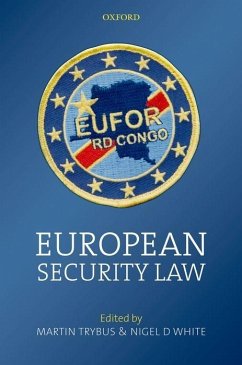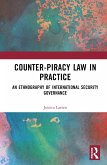There have been a number of EU military operations in the last few years, evidence of a growing European military confidence, which in turn is a reflection of a developing competence in security matters. The creation of the European Union and its Common Foreign and Security Policy by the Maastricht Treaty of 1992 heralded this development, though the idea of a common defence can be traced to the beginnings of European integration. This book provides an analysis of
the EU's evolving legal framework and powers on such matters, but it also recognizes that such a framework sits, sometimes uneasily, within the wider body of EU and International Law. The EU's security and defence policy also overlaps with those of other organizations such as the Organization for
Security and Cooperation in Europe (OSCE), but more especially the North Atlantic Treaty Organization (NATO). EU relations with NATO have, in particular, caused some concern and are still evolving as both organizations seek to play a wider security role in the post-Cold War, and now post-9/11, era.
With security now dominating political agendas at the domestic, regional, and international levels, it is no surprise that the EU's concern for security has grown apace, and, following the Union's respect for the rule of law, has been shaped legally as well as politically. This book evaluates the progress of the Union in this regard in its international context and in the wider context of European integration. The analysis is in the main a legal one, but is placed squarely within historical and
political perspectives.
Hinweis: Dieser Artikel kann nur an eine deutsche Lieferadresse ausgeliefert werden.
the EU's evolving legal framework and powers on such matters, but it also recognizes that such a framework sits, sometimes uneasily, within the wider body of EU and International Law. The EU's security and defence policy also overlaps with those of other organizations such as the Organization for
Security and Cooperation in Europe (OSCE), but more especially the North Atlantic Treaty Organization (NATO). EU relations with NATO have, in particular, caused some concern and are still evolving as both organizations seek to play a wider security role in the post-Cold War, and now post-9/11, era.
With security now dominating political agendas at the domestic, regional, and international levels, it is no surprise that the EU's concern for security has grown apace, and, following the Union's respect for the rule of law, has been shaped legally as well as politically. This book evaluates the progress of the Union in this regard in its international context and in the wider context of European integration. The analysis is in the main a legal one, but is placed squarely within historical and
political perspectives.
Hinweis: Dieser Artikel kann nur an eine deutsche Lieferadresse ausgeliefert werden.








